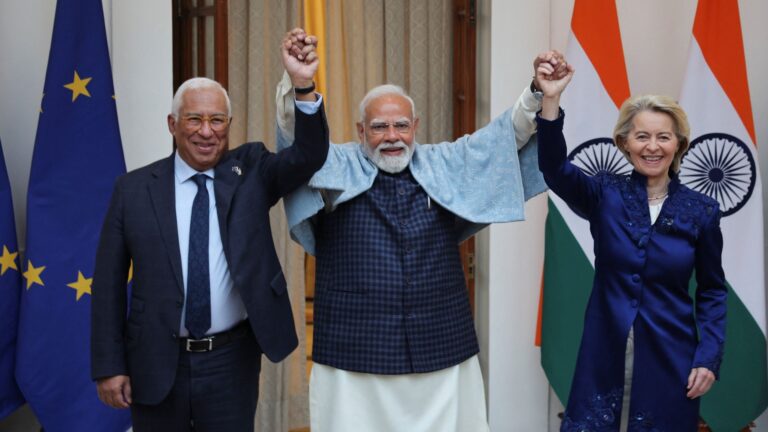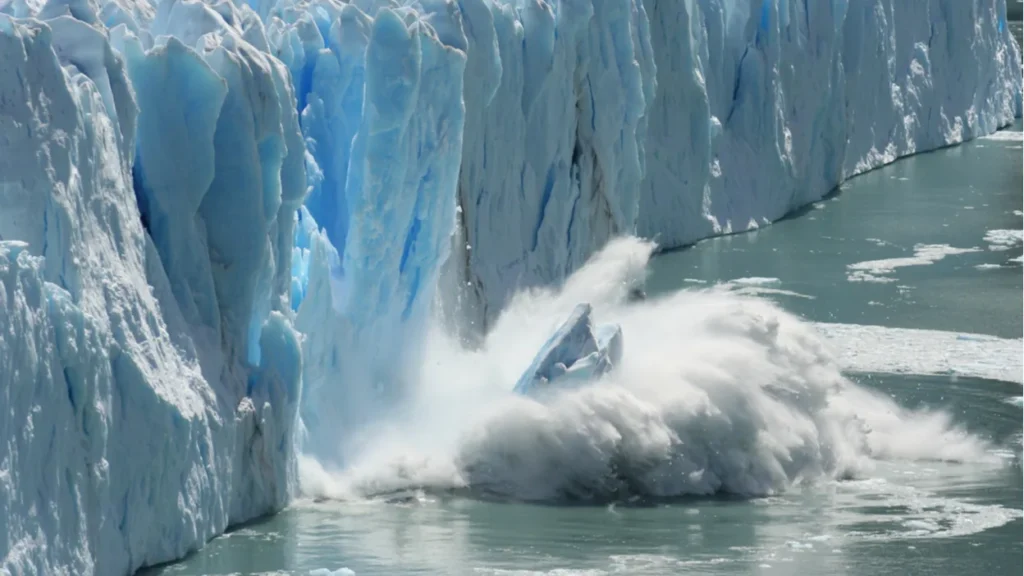
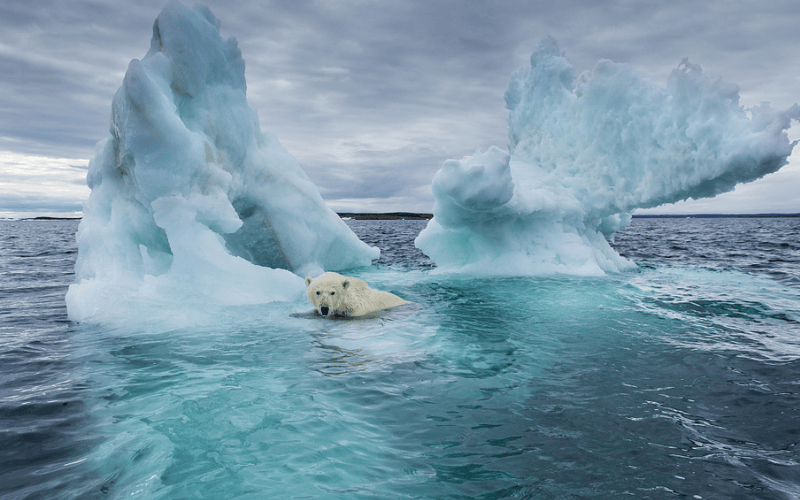
Once considered an untouched wilderness ruled by polar bears and auroras, the Arctic is today melting into a new battlefield. Beneath the retreating layers of ice lie untapped riches, an estimated 13% of the world’s undiscovered oil and 30% of its natural gas, along with rare earths, minerals, and even new shipping routes. As the ice melts, ambitions solidify. Nations are moving swiftly, not with sleds, but with submarines, satellites, and state strategies.
Climate Change: The Great Un-locker
The Arctic is getting warmer nearly four times faster than the rest of the world. Because of this climate change, the thick ice is melting and opening up the region. Ironically, while the world is discussing how to cut pollution, many countries and companies are rushing to take advantage of the valuable resources hidden under the Arctic.
Earlier, this area was covered in ice all year, so it was too difficult to use. But now, because the ice is melting, it’s easier to reach. The Northern Sea Route, a shipping path that connects Europe and Asia through Russia, is staying open for more months in a year. This makes trade faster and more profitable, so interest in the region is growing quickly.
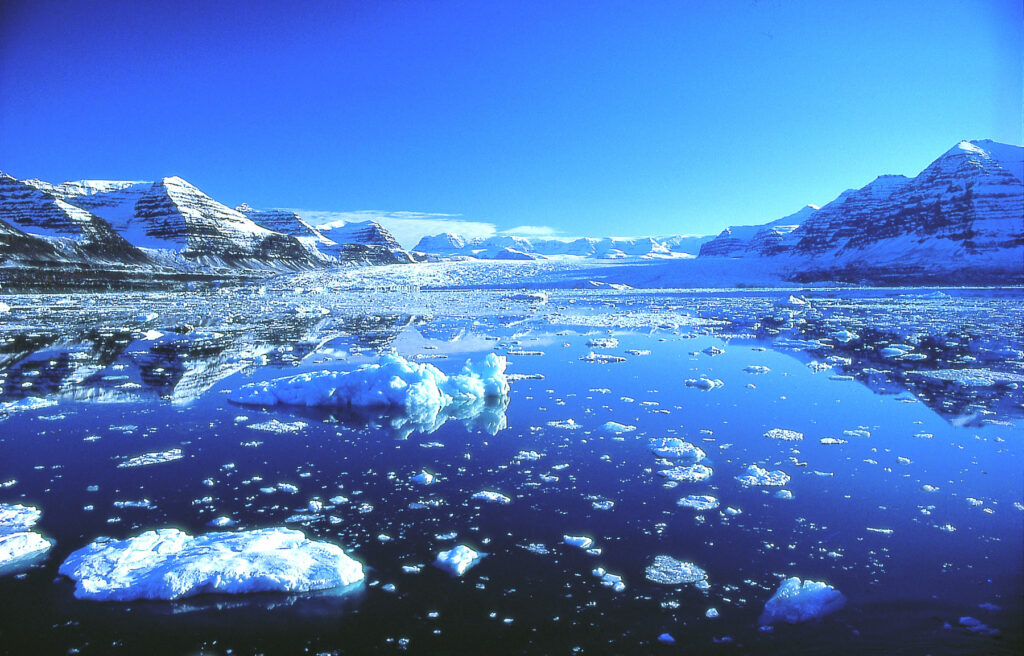
Who’s Grabbing What? The New Cold War
This isn’t just an economic race. It’s a strategic showdown. Here’s how the big players are positioning themselves:
- Russia: Claims nearly half of the Arctic. It’s building military bases, nuclear icebreakers, and underwater missile systems. In 2023, it launched the world’s most powerful icebreaker Yakutia, asserting control over the Northern Sea Route.
- United States: Increasing its Arctic presence via Alaska. The U.S. Navy is investing in cold-weather warfare and surveillance to counter Russian expansion.
- China: Declares itself a “near-Arctic” state. It is heavily investing in infrastructure under the Polar Silk Road, eyeing access to resources and global trade routes.
- Canada, Norway, Denmark: Also expanding their territorial claims, many of which overlap, particularly around the Lomonosov Ridge, an underwater mountain range that may hold massive reserves.
The North is no longer neutral. It’s a chessboard of national interests.
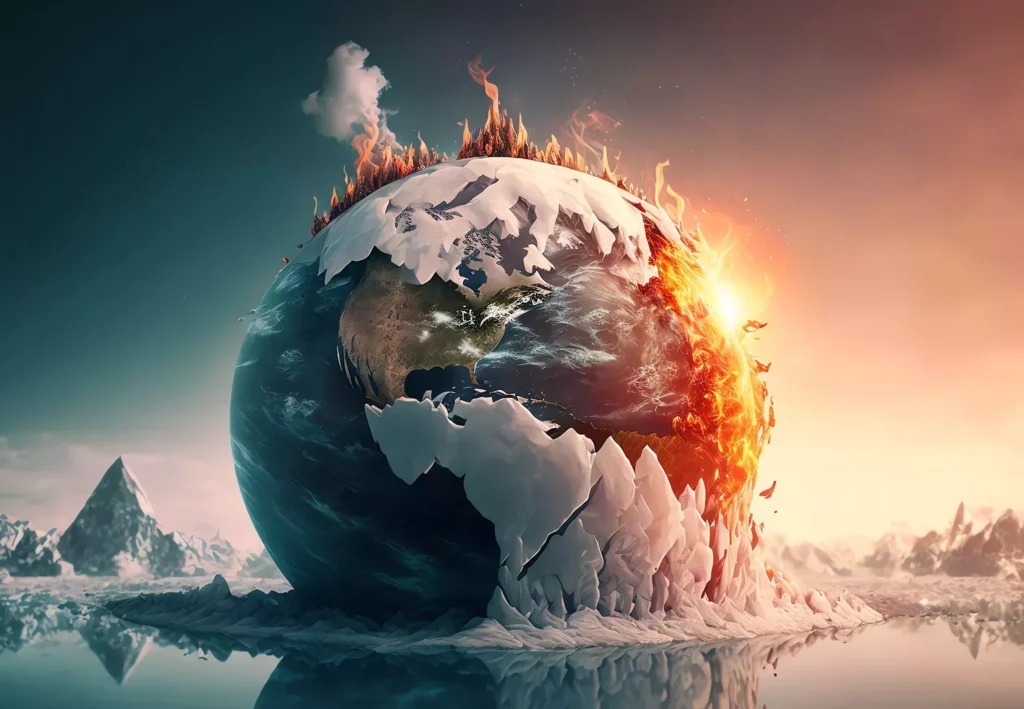
India’s Arctic Awakening
Though far from the polar circle, India is not a silent spectator. In 2022, it released its first Arctic Policy, emphasizing:
- Climate research
- Energy security
- Sustainable development
- Strategic presence via the Himadri Research Station in Svalbard, Norway
India aims to contribute through science and diplomacy, ensuring that the Arctic remains a global commons, not a battlefield.
The Role of the United Nations: A Weak Watchdog?
The Arctic may seem like a frozen no man’s land, but several countries are trying to claim large parts of it, and that’s where the United Nations (UN) comes in. The main global rulebook for this is the United Nations Convention on the Law of the Sea (UNCLOS).
According to UNCLOS, a country can claim rights to explore and use the ocean up to 200 nautical miles from its coast. This area is called the Exclusive Economic Zone (EEZ). But countries can also ask to extend this zone if they can prove their underwater continental shelf stretches beyond that limit.
-
Russia, Canada, and Denmark have all submitted scientific data to the UN, trying to prove that a long underwater ridge, called the Lomonosov Ridge, is part of their own continental shelf.
-
This has led to overlapping claims, especially around the North Pole itself, where resources are believed to be richest.
The UN has no power to settle disputes or enforce rules. It can review data, but it cannot stop countries from sending military forces or building infrastructure in contested zones. This leaves the door open for growing tensions.
The Arctic is heating up, in temperature, ambition, and tension. What was once a no-man’s land is becoming every nation’s target. As the planet warms, the lines between cooperation and confrontation blur. Will the Arctic be the site of new global unity through sustainable development, or will it mirror the mistakes of the profit over peace, power over existence?
As we dig deeper into frozen lands, we must ask: are we mining the Earth, or mortgaging our future?
For more informative articles stay tuned at The World Times.


